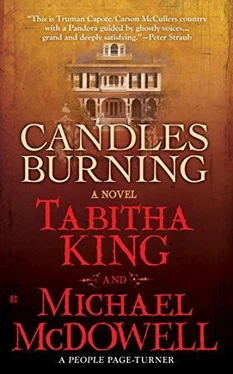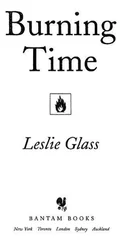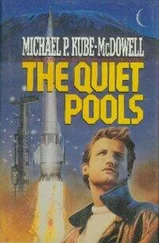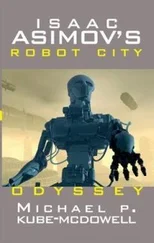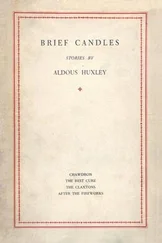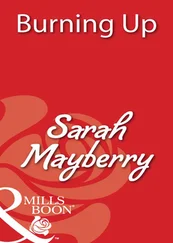When the turn came, away from the Gulf and toward Pensacola, I looked back. The black water of the Gulf was already no more than a distant dark glimmering horizon.
Artificial light increased steadily as we left the island. Pensacola slept with open windows in the heat. Placid streetlight defined the leaves of trees and glistened on pavement. As the Scenic Highway climbed the western side of Escambia Bay, again, I looked back. The Causeway arched to the clot of darkness gridded with light that was Gulf Breeze, and the similar shape of Pensacola Beach beyond. Santa Rosa Island loomed as an uneven ghostly slash, pocked scarcely with lights and splotched with inky black vegetation, between the Gulf and the bay.
I didn’t know where I would be when the sun rose. I only knew where I wasn’t going to be. Nor did I know how long I might be away, but I did not expect to be very long. I would return; I had money to collect.
I felt stuck in the summer night like a bug in amber. In the silence between Mrs. Mank and myself, the clock in the dashboard of the Benz became notably loud.
Mrs. Mank shifted upward and the Benz surged. My stomach lurched and the forward motion pressed me back into the seat. The dashboard clock tsked loudly at me.
klikitpikitlikitrikitklikitstikitlikprikitlikitwikitwikit
tell you a secret
secret unshine
otongotongotongoton
unshine secret secret secret
don’t make me tell don’t you tell secret hell sunshine
see the cold moon sees me seize the dark sun seas me
calliopecalliopecalliopecalliope
I opened my eyes into a dazzle of oncoming light. I was blinded. And I saw. The light passed through me and was all around with a great noise that pushed and pulled at every cell of my body, like the slipstream of the wings of an enormous bird passing by. There was no heat in the light, and no cold, only its vibration resonating in the small dark space where I bowed my head over my knees.
I woke again, with a small jolt and the sensation of falling. My mouth was open and dry as if I had eaten a ghost, and its corners were damp with spittle. Mrs. Mank was only inches from me across the gearbox. The headlights splashed enough light back off the tarmac to show her like a shadow.
I thought: I am a shadow to her too.
I said, “I know a secret too.”
Her gaze whipped right.
“Daddy told me, Daddy told me what you did, Daddy told me why!”
Mrs. Mank gasped as if she were running very hard. Her eyes were on the road again, her body crouched over the wheel as if to spring right through the windshield.
I closed my eyes.
ROLLING gently over gravel, the Benz chuckled and cackled as if it were amused. My eyelids felt glued shut. The effort it took to open them had that protest of lashes tearing out.
The light was morning soft, and the world around was drunkenly green. A yawn forced its way out of me, and the flavor of all that fresh green washed into my mouth and lungs. My cells seemed to suck it up. I wondered if I would be green when next I looked in the mirror.
The Benz came to a seemingly inevitable stop, and settled heavily on the gravel. Mrs. Mank sighed as if she had made a great effort. I looked toward her, and met her gaze. It was calm and confident and more than a little smug.
I wanted to slap her face.
Some fierce glint must have shown itself in my eyes because she flinched.
“Calley,” she said, “I’m trying to give you the world.”
That was the secret?
“I don’t want it,” I said, without thought, and with plenty of adolescent pout in my tone.
“You have no choice,” she said. “Debts have been assumed and must be repaid.”
“Not by me.” I opened the car door and unfolded myself from the Benz.
Inhaling lovely cool green air, feasting my eyes on the flawless depth of green lawn, I strolled away from the Benz to face the house squarely. If any question had risen in my mind that Mrs. Mank was very wealthy, the house in Brookline answered it definitively. It didn’t have a name the way a Southern house would, but the double front doors opened wide onto a high-ceiling hall, and in that hall stood a grand piano. Not a baby grand, a grand .
I went straight to it, opened it, and let my fingertips caress each key reverently.
Mrs. Mank spoke over my shoulder. “It’s not going anywhere, Calley.”
And I wasn’t, at least not right away. I wanted to explore. Mrs. Mank chose to behave as if I were going to go along with her plans, despite my defiance in her driveway. It was an attitude that Mama would have been right at home with.
The no-longer-quite-young man who had opened the doors as the roadster stopped in the drive came in with my bindle—my pillowcase. Mrs. Mank greeted him with the name Appleyard, and casually told him my name. Appleyard was an ugly man who wore a neat beard to cover acne scars. His eyes however were as beautiful as any I ever seen, the shade of violet once associated with the eyes of Elizabeth Taylor.
I was shown to the room that was to be mine, a room with its own bathroom, and an east-facing balcony with a tiny table and chair for civilized morning coffee. An assortment of new clothing hung in the closet or was folded in the drawers of the dresser. I liked the clothes that Mrs. Mank or one of her minions had chosen for me. For the first time in my life I did not feel like an orphan in a thrift shop.
The bathroom was furnished luxuriously as well, with the biggest bathtub I had yet to encounter, along with a walk-in shower. A terrycloth bathrobe sat folded on a stool by the tub. From soap to knickers, everything that I could conceivably need was provided.
So this was what it was like to have something.
The first thing that I did was drop my clothes and shower. After, when I sat at the vanity and picked up the comb, I thought: This is how Mama feels, like a grown woman. Tugging the comb through the tangles of my hair, I was surprised to see a fistful of my hair on its teeth. I went on combing, out of curiosity, and in a few minutes was looking at myself, entirely bald, in the mirror.
Mrs. Mank was unperturbed.
“It will grow back in,” she declared.
She took me out after we breakfasted and bought me a copper-penny-colored wig, in a dramatically asymmetric style. For me, the extremes of fashion in the sixties are divided between Space-Age Stewardess and Thrift Shop Halloween Costume. My new wig belonged to the first category. Though Mama had accepted the Jackie Kennedy variant, Space-Age Stewardess Married To Airline CEO, she would have been horrified by the color and unfeminine style of the wig as too too , to say nothing of being inappropriate for a young girl still in school. The wig amused me almost as much as it did Mrs. Mank and Appleyard.
Appleyard turned out to be Mrs. Mank’s factotum. He turned up sooner or later in all of Mrs. Mank’s homes, of which she had, at that time, nine. The Brookline house had its own housekeeper, a woman addressed only as Price, and two mute, hearing-impaired maids, Fritzie and Lulu, with whom it was necessary to communicate in sign language. Since it was the preferred lingua franca of the household, I picked it up as quickly as I could.
With so little spoken aloud, the house retained a fundamental library quiet. It was a house without television but not without music. Often classical music filled the house, played from the hi-fi system that was connected to speakers in every room. Mrs. Mank’s LP collection was enormous and, I would come to realize, immensely valuable in the number and quality of its rarities. I have found recordings there of which there is no public record, that must have been made just for her.
Читать дальше
